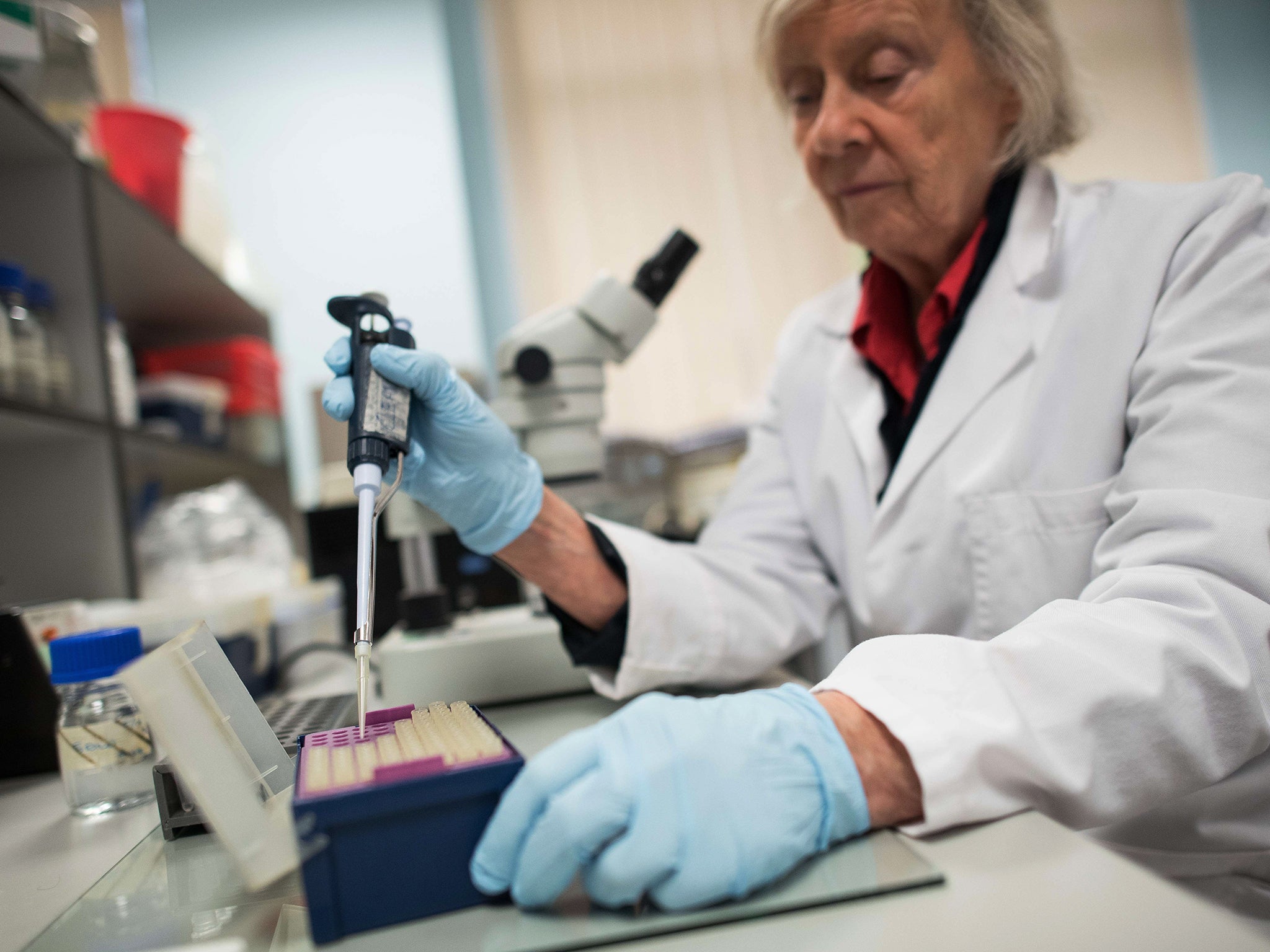EU referendum: British science would suffer badly in event of a Brexit, scientists warn
They argue such a move would also have a detrimental impact on the funding of science in Britain

British science would suffer badly if the UK decided to leave the European Union, leading scientists have warned.
A “Brexit” would impinge on scientific collaboration with other European countries and jeopardise Britain’s ability to attract the best scientists to work in UK research institutes, they said.
It would also have a detrimental impact on the funding of science in Britain given that scientific projects in the UK attract a disproportionate amount of EU research money, they added.
“There is no question that science in the UK will be stronger in Europe than out of Europe and what is good for science in the UK is good for everyone in the UK,” said Sir Paul Nurse, the head of the Francis Crick Institute in London and former president of the Royal Society.
“As part of the EU we have influence in that powerhouse of science – it’s frankly a no brainer [to stay in the EU]….We lose influence. We don’t set the agenda,” Sir Paul said.
“It’s like saying everything will be alright on the night – I just don’t think we should take those risks. We will be left somewhat lonely in a wet part of Europe….we’ll be shooting ourselves in the foot,” he said.
Although Britain is a net contributor to the EU, it attracts more research funding than it pays for. Between 2007 and 2013, for instance, the UK contributed Euro5.4bn to the EU’s research and development budget but got back Euro8.8bn for science research in the UK.
For the same period, however, Britain contributed Euro78bn to the EU in total, and received Euro48n in return – a net contribution of Euro30bn. Supports of a Brext said that the money saved could be spent on science.
However, a Brexit would not necessary mean that the money saved on EU spending would automatically be used to boost scientific research, said Sir Robert Lechler, president of the Academy of Medical Sciences.
Britain does well out of EU research funding given that it accounts for 16 per cent of its output but only 11 per cent of the input, Sir Robert said. Five out of the 10 top research centres that are recipients of EU funding are in the UK and 13 per cent of leading university research comes from Europe, he said.
In addition to funding science, the EU instigates collaborative research projects across Europe that would be difficult if not impossible to arrange. “The EU has been a catalyst for collaboration,” Sir Robert said.
Alan Thorpe, former director of the European Centre for Medium Range Weather Forecasting, said that Europeans “are the envy of the world in what we can do collectively” in science. He cited the ability of the European centre to predict the path of Hurricane Sandy as it hit New York in 2012, ahead of US-based weather-forecasting centres.
Sir Paul said that as head of the Crick Institute where about one in three scientists come from continental Europe he is concerned about the effect that Brexit would have on young, foreign-born researchers and the “symbolic implications of walking away from Europe”.
“It will be a very negative statement if we leave….Of course we can continue to collaborate with others around the world but it will be more bureaucratic and more difficult when barriers are put up…It will make it more complicated and it wouldn’t work so well,” Sir Paul said.
Other scientists, however, will be arguing that British science will not suffer if the UK leaves the EU.
A spokesperson for Scientists in Britain said: “Whilst there are potential benefits from Brexit, our own angle is more about showing that UK Science will remain strong in a post-Brexit scenario, and explaining why we feel that many of the concerns being raised about Brexit having a major impact are misplaced.”
Join our commenting forum
Join thought-provoking conversations, follow other Independent readers and see their replies
Comments
Bookmark popover
Removed from bookmarks